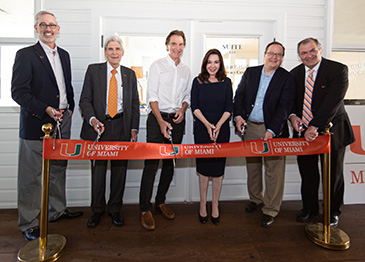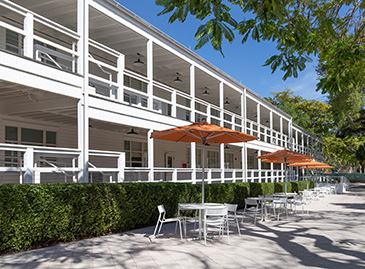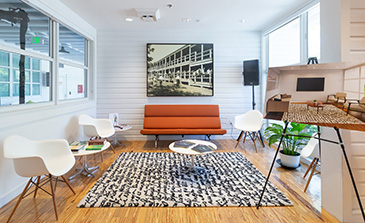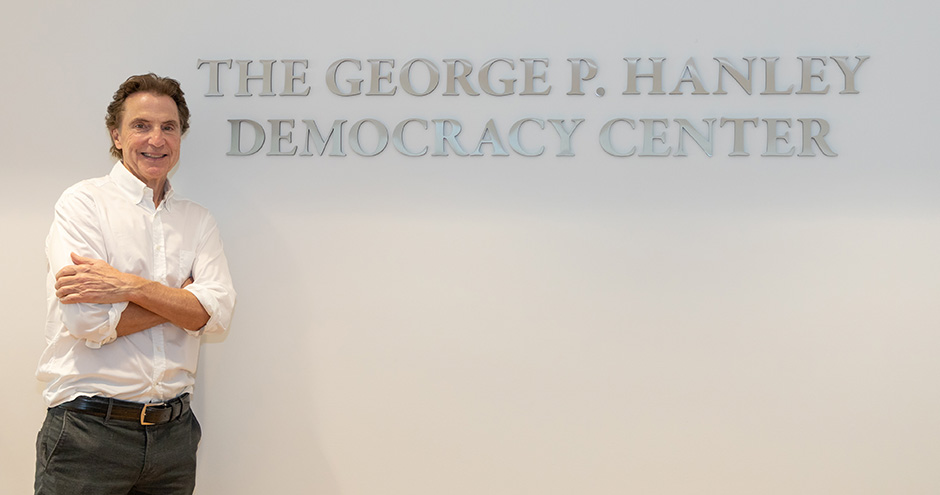Born in 5th-century Athens, the concept of democracy—a form of government that places political power in the hands of the citizenry—inspired the founders of the United States and has been embraced by dozens of nations over the past century.
 But, as the rise of authoritarian leaders and movements both in the U.S. and abroad makes clear, the preservation of democracy requires vigilance and engagement. A new center of the College of Arts & Sciences is poised to have a dramatic impact on understanding and stewardship of the democratic process locally, nationally, and around the world.
But, as the rise of authoritarian leaders and movements both in the U.S. and abroad makes clear, the preservation of democracy requires vigilance and engagement. A new center of the College of Arts & Sciences is poised to have a dramatic impact on understanding and stewardship of the democratic process locally, nationally, and around the world.
The George P. Hanley Democracy Center celebrated its grand opening on March 2.
“We envision the center as a dynamic forum for civil conversations about what democracy means to different people,” says Hanley, a Miami Beach entrepreneur, and philanthropist whose generous gift funded the center.
“I find that when I have civil discourse with people, we are much closer in views than the cable news shows would have us believe,” he notes. “This is a place to examine and share different ways of thinking about politics and the future of democracy, both at home and abroad – and, in the process, to find common ground. Because, at the end of the day, we are all Americans.”
 In joining other university-based democracy centers in the U.S., “The George P. Hanley Democracy Center will become the preeminent institution of its kind in South Florida,” says Gregory Koger, professor in the Department of Political Science, who will direct the center.
In joining other university-based democracy centers in the U.S., “The George P. Hanley Democracy Center will become the preeminent institution of its kind in South Florida,” says Gregory Koger, professor in the Department of Political Science, who will direct the center.
With its strategic location in a U.S. battleground state at the center of the Americas, the University of Miami is the ideal academic venue for such an enterprise, says Leonidas Bachas, dean of the College of Arts and Sciences. “Our students,” he says, “can become global ambassadors who promote the democratic process and combat authoritarianism.
“Along with advancing understanding of the democratic process, we will share knowledge and insights with citizens, scholars, and public officials to help them make informed decisions about the structure and practice of elections and governing.”
In enumerating the threats currently jeopardizing democracy around the world, Koger notes that attacks on U.S. democracy, such as the January 6, 2021, assault on the Capitol, have been replicated by autocratic leaders and their followers in European, Asian, and Latin American countries.
 “We need to understand why this backsliding is happening and how to restore public confidence and commitment to democracy,” Koger says. “That means encouraging people from all backgrounds to listen to each other, reconnect with the principles of democracy, engage in the spirit of community, and be willing to compromise in the political arena.”
“We need to understand why this backsliding is happening and how to restore public confidence and commitment to democracy,” Koger says. “That means encouraging people from all backgrounds to listen to each other, reconnect with the principles of democracy, engage in the spirit of community, and be willing to compromise in the political arena.”
Toward that end, the George P. Hanley Democracy Center will host events and activities to engage students, faculty, and the community, including speakers, panel discussions, and conferences. Research grants and student internships will also be offered.
Hanley’s gift, which is part of the University’s fundraising campaign—Ever Brighter: The Campaign for Our Next Century—will also create The George P. Hanley Endowed Chair in Democracy, to be awarded to a tenured professor with expertise in the field.
“Democracy works best when people of all ages are engaged in the process, and there are so many ways to be involved in Florida, across the nation, and around the world,” Hanley says. “We hope that the new center will encourage students to become leaders in their communities as they draw on democratic values and principles to shape our country’s future.”

